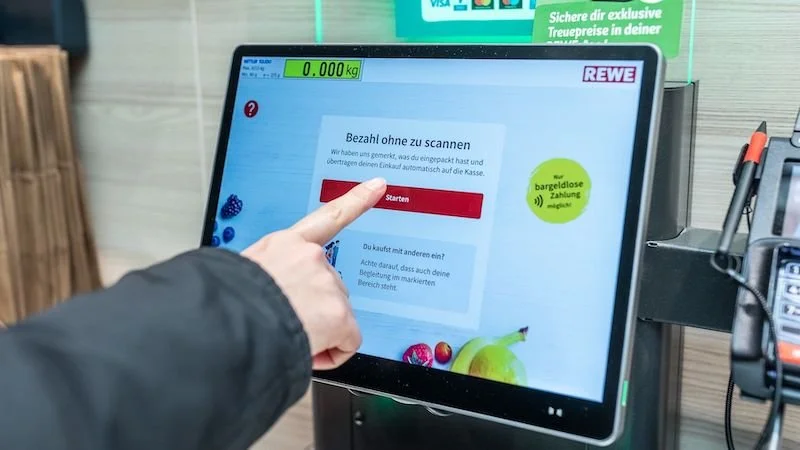How technology and social media have influenced gambling companies
The rapid improvements in technology and the widespread adoption of social media have significantly transformed the gaming industry in recent years.
Online gambling platforms and traditional bricks and mortar casinos are currently coexisting, and the market is always changing.
This article examines how social media and technology have affected gaming firms, molding their tactics, user interfaces, and general business dynamics.
Social media and technology's impact on gambling dynamics
The emergence of online platforms has extended beyond the confines of conventional casinos, providing a wide range of gaming experiences to a worldwide clientele.
The widespread use of smartphones and the emergence of mobile applications have further democratised access by making it possible for people to bet on sporting events, play online casino games, and engage in other types of gambling with previously unheard of ease.
Understanding user behaviour has become crucial with the advent of data analytics, a fundamental component of technological growth.
By using this analytical capability, gambling organisations can give personalised promotions and game recommendations to their customers. This increases user contentment and aids with retention.
For gaming companies, social media channels have become effective marketing tools. These platforms help to build a feeling of community among gamblers by attracting new members and providing compelling content and tailored advertising.
By exchanging tips, tricks, and even victories, players can build a vibrant community that takes their gaming beyond the isolation of a single activity. Virtual reality and live broadcasting have increased the level of immersion in online gaming.
Video streaming makes it possible for live dealer games to connect the virtual and real worlds, giving players a more genuine casino experience. And the advent of 1 dollar casinos which allow players to deposit as little as just 1 dollar to play has made it even more interesting for punters.
An insight into the industry's dedication to innovation and improved user experiences may be gained from the investigation of virtual reality in the creation of immersive virtual casinos.
There are obstacles associated with this transforming power, though. To handle consumer protection, responsible gaming, and the worldwide nature of online gambling, regulatory frameworks are changing.
The incorporation of nascent technologies, like blockchain, introduces intricacy to the regulatory framework, demanding continuous modification to guarantee an equitable and safe milieu for users.
Ways in which social media has influenced gambling
From targeted advertisements to the rise of online betting communities, the impact of social media on the gambling industry is multifaceted, raising questions about its consequences on individuals' behaviors and attitudes towards risk.
This convergence has transformed traditional notions of gambling, creating a complex web of interconnected experiences that necessitate a closer examination of how social media shapes and influences this evolving aspect of modern culture. Here are some aspects of online gambling that social media and technology have influenced.
Platforms for online gambling
Online gaming platforms have made it possible for gambling enterprises to reach a worldwide customer base.
With computers or mobile devices, players may now access a vast selection of casino games, sports betting, and other gambling activities from the comfort of their homes.
Due to this change, the market for gambling enterprises has grown, drawing a wide range of users and dismantling geographical restrictions.
Mobile gaming apps
As smartphones have become more popular, so too have the number of mobile gaming applications. With a few touches on their devices, users may now wager or play casino games.
This ease of use has helped the gambling business flourish by increasing accessibility and drawing in a wider range of players.
Data analytics and personalisation
Technology has armed gaming enterprises with strong data analytics tools. With the help of these technologies, businesses may examine user behaviour, preferences, and patterns and provide individualised experiences.
The utilization of data has improved user satisfaction and increased client retention for gaming companies through tailored game recommendations and targeted incentives.
Social media marketing
Social media has developed into a potent marketing tool for the gaming sector. Businesses utilize social media sites like Facebook, Twitter, and Instagram to advertise their products, interact with customers, and increase brand recognition.
Social media also makes it easier for users to share their experiences, which fosters a sense of community among bettors.
It's important to remember, though, that to address addiction issues, the responsible gambling message is becoming more and more prominent on these platforms.
Virtual reality with live streaming
Virtual reality (VR) and live streaming technologies have expanded the possibilities for online gaming. Live dealer games offer a genuine casino experience as players engage with professional croupiers through live video broadcasting.
More research is being done on VR technology to construct immersive virtual casinos, which would further obfuscate the distinction between offline and online gambling.
Regulatory challenges and responsible gambling
Regulatory issues have emerged as the gaming business continues to grow because of technology and social media. Governments from all around the world are debating how to modify their current gambling regulations to reflect the digital age.
Due to their global reach, internet gambling services create concerns regarding consumer protection, taxation, and jurisdiction.
Global regulatory divergence
Gambling enterprises and regulatory authorities have a great deal of difficulty due to the absence of uniform legislation among nations.
While some countries support internet gambling and tax and regulate it, others place severe limitations or outright bans on it. This discrepancy makes the climate more difficult for businesses looking to expand internationally.
Consumer protection and responsible gambling
With the rise of internet gambling and its easy accessibility, issues about addiction and responsible gambling practices have risen to the forefront.
There is a growing push for gambling corporations to impose strict policies to safeguard their most vulnerable customers.
To encourage responsible gaming, many have implemented age verification procedures, spending caps, and self-exclusion schemes.
Emerging technologies and regulatory reaction
As technology advances, new problems crop up, such as how to incorporate cryptocurrencies and blockchain into online gaming transactions. To maintain consumer safety while promoting sector growth, regulators are keeping up with these innovations.
Regulations about marketing and advertising
The usage of social media by gaming companies for advertising purposes has drawn regulatory attention.
Strict regulations that emphasise responsible gaming messaging and prohibit advertisements that target vulnerable demographics have been enforced by numerous countries on how these companies can market their services.
Above all, regulatory frameworks are essential to provide a fair, safe, and responsible environment for consumers as technology and social media transform the gaming business.
The constant problem of balancing sector expansion with consumer protection calls for cooperation between governmental agencies, regulatory bodies, and gaming corporations.
Potential dangers of the rise of gambling due to social media and technological impacts
As digital platforms continue to evolve, providing unprecedented accessibility to online casinos and betting avenues, concerns about the potential dangers associated with the rise of gambling are becoming increasingly prominent.
This shift not only blurs the lines between leisure and addiction but also raises questions about the societal and individual implications of unchecked gambling behaviour facilitated by the omnipresence of technology.
Therefore, it is important to explore and understand the intricate relationship between social media, technology, and the alarming rise of gambling related issues in our interconnected world.
Potential for addiction and effect on mental health
The increasing accessibility of online gambling, made possible by social media and technology, prompts worries about the possibility of addiction and the effects it may have on mental health.
The ease with which individuals can partake in gambling activities might encourage addictive behaviors, hence a more thorough examination of the social repercussions of greater accessibility to gambling is necessary.
Responsible gambling measures
Although these are included in the paper, more research is necessary. It's critical to comprehend the efficacy of age verification procedures, spending caps, and self-exclusion programs.
Furthermore, analysing the difficulties gambling companies have had putting these policies into place and keeping them up to date can reveal information about how committed the sector is to responsible gaming.
Social repercussions of a widespread gambling culture
The emergence of online gaming sites and ubiquitous social media marketing could lead to a wider spread of gambling culture.
The possible social effects, including alterations to social norms and attitudes toward gambling, as well as the ramifications for people as individuals, families, and communities, ought to be covered in detail in this section.
Maintaining innovation while upholding social responsibility
As technology develops further, the sector must find a way to combine both social responsibility and innovation.
Analysing how gaming businesses manage this precarious balance might reveal important information about how dedicated the sector is to tackling social responsibility.
FAQs
What effects has technology had on internet gambling accessibility?
Online platforms and mobile apps have proliferated, making gaming more accessible than ever thanks to technology. Gamers can now participate in a variety of gambling activities from almost any location with an internet connection.
What steps are gaming businesses taking in the digital age to address concerns about responsible gaming?
Features like age verification procedures, spending caps, and self-exclusion programs are examples of responsible gambling measures that gambling companies are putting in place.
They are also using data analytics to recognise and support users exhibiting indicators of problematic gambling behaviour, and they are integrating responsible gambling messaging into their advertising.
In what ways are regulating organisations adjusting to the difficulties presented by the gaming industry's digital revolution?
To address concerns like jurisdiction, taxation, and consumer protection, regulatory authorities are attempting to standardise and modernise legislation in light of the global nature of online gaming.
The advent of novel technologies, such as blockchain and cryptocurrency, poses supplementary difficulties, and regulatory bodies are making an effort to maintain pace while cultivating a safe and equitable gaming milieu.
Conclusion
Although there are many advantages to the influence of social media on gambling such as more accessibility and customised experiences, there are also worries about the risk of addiction and the requirement for responsible gaming.
As technology develops, it will be interesting to see how the gambling industry adjusts to these developments and finds a balance between innovation and responsible gaming.
















Continue reading…